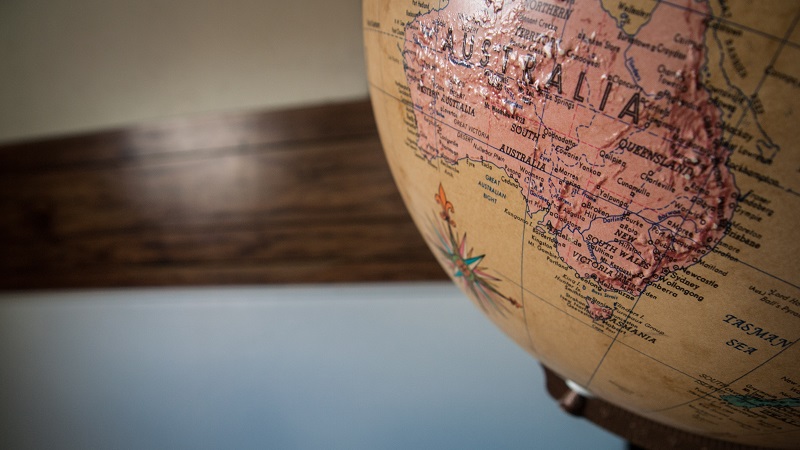Australian attitudes towards China and the United States
June 23 2017

Last updated June 26 2017.
Despite recent negative publicity in the media, three polls provide evidence of a generally positive view of Australians to China. The polls were undertaken by the United States Studies Centre (USSC) at the University of Sydney; the Lowy Institute for International Policy; and global marketing and opinion research company Ipsos. The three polls also enable comparisons with our attitudes towards the United States.
In March 2017 the United States Studies Centre polled 750 Australians on their attitudes towards the US and its role in the region. Several questions also asked Australians to compare the US with China.[1]
1. Which country has the most influence in Asia today?
Seventy-two percent said China, while 11 percent said the US.
2. Which country will have the most influence in Asia in 10 years?
Sixty-four percent said China, while 13 percent said the US.
3. Which country rates more favourably on doing good or harm in the Indo-Pacific region?
Thirty percent said China and 26 percent said the US, while 44 percent favoured neither one over the other.
4. Which country rates more favourably on influence in Australia?
Thirty percent said China, 29 percent said the US, while 41 percent favoured neither one over the other.
5. A more favourable view of increased trade is associated with which country?
Twenty-seven percent said China, 17 percent said the US, while 56 percent favoured neither one over the other.
6. A more favourable view of investment is associated with which country?
Thirty-two percent said the US and 9 percent said China, while 60 percent favoured neither one over the other.
7. Over the next 10 years, which country is most likely to start a conflict in the Indo-Pacific region?
Nineteen percent said the US, while 13 percent said China.
8. Australia had the lowest average level of nationalism of the six countries studied (China, India, Indonesia, Japan and Korea).[2] For Australians who were less nationalistic, more reported wanting a stronger relationship with China than with the US. For Australians who were more nationalistic, the difference between those wanting a stronger relationship with China compared with the US was statistically insignificant.
9. In a 2016 poll by the USSC, 30 percent of Australians reported wanting a stronger rather than weaker relationship with China. This compared with four percent who said the same about the US.[3]
The 2017 Lowy Institute poll asked Australians about their attitudes towards the US under President Donald Trump, China and other global and regional powers.[4]
1. Which relationship is more important: the US or China?
Forty-five percent said the US, and 43 percent said China.
2. Do you think it is likely or unlikely that China will become a military threat to Australia in the next 20 years?
Forty-six percent said China is likely to become a military threat in the next 20 years, a seven percentage point increase since 2016.
3. Is China an economic partner or military threat?
Seventy-nine percent said China is more of an economic partner to Australia, while 13 percent said it is more of a military threat. Five percent said China was both equally.
4. What are the threats to Australia’s vital interests in the next 10 years?
Eighty-four percent identified China’s foreign policies as an important or critical threat to Australia’s vital interests. Eighty-five percent identified US foreign policies as a threat.
5. Are you personally in favour of or against Australia conducting freedom of navigation operations similar to the US in an effort to ensure freedom of navigation in the South China Sea?
Sixty-eight percent said they are in favour of freedom of navigation operations, while 19 percent are against.
6. Would you personally be in favour of or against the use of Australian military forces if China initiated a military conflict with one of its neighbours over disputed islands or territories?
Thirty-four percent said they were in favour, and 58 percent against.
7. Please rate your feelings towards other countries, zero meaning a very cold, unfavourable feeling, and fifty meaning not particularly warm or cold.
China was rated an average of 59, and the US 69. This compares to respective ratings of 56 and 60 a decade earlier. New Zealand receives the warmest rating, with an average of 85.
The 2017 Ipsos ‘Dangerous World’ poll surveyed citizens of 25 countries on who they believe influences global affairs.[5]
1. The United States’ influence declined by 24 percentage points from 2016, with 40 percent of respondents saying it exerts a positive influence. This compares to 49 percent for China and 79 percent for Australia.
2. Thirty-seven percent of Australian citizens and 49 percent of Chinese citizens surveyed said the US has a positive influence on world affairs (in other words, a higher percentage of Chinese believe the US has a positive influence on world affairs than Australians).
This fact sheet was prepared by James Laurenceson, Deputy Director, Australia-China Relations Institute, University of Technology Sydney and Simone van Nieuwenhuizen, Project and Research Support Officer, Australia-China Relations Institute, University of Technology Sydney.
Sources
[1] United States Studies Centre, ’Asian Research Network: Survey on America’s role in the Indo-Pacific’, May 31 2017 <https://www.ussc.edu.au/analysis/the-asian-research-network-survey-on-americas-role-in-the-indo-pacific>.
[2] Levels of nationalism were constructed based on responses to seven items in the survey. See p.19 of the survey for further details.
[3] United States Studies Centre, ’Asian Research Network: Survey on America’s role in the Indo-Pacific’, June 8 2016 <https://www.ussc.edu.au/analysis/the-asian-research-network-survey-on-americas-role-in-the-asia-pacific>.
[4] Alex Oliver, ‘The Lowy Institute Poll 2017’, Lowy Institute for International Policy, June 2017 < https://www.lowyinstitute.org/sites/default/files/documents/lowy-2017-pollreport-web.pdf>.
[5] Ipsos Global @dvisor poll, Ipsos, June 13 2017 < https://www.ipsos.com/sites/default/files/2017-06/G%40%20Dangerous%20World-Report-2017-06-13_0.pdf>.


